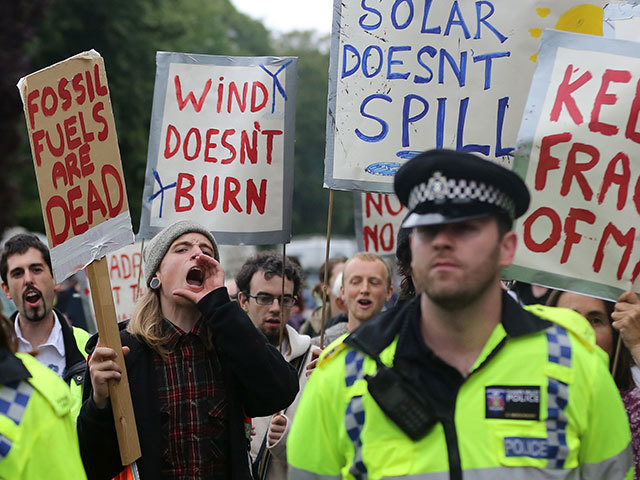
More than half of Britons think the UK should go ahead with controversial plans to “frack” for onshore oil and gas, a new survey has found.
The poll found that 57% think the UK should press ahead with shale gas production while only 16% of were opposed, although this figure rose to one in five in Scotland.
The survey, commissioned by the UK Onshore Oil and Gas (UKOOG) lobby group, said 67% of people surveyed said the UK needed to reduce its reliance on gas from other countries.
Currently the UK gets more than half of its imported gas from Norway and over a quarter from Qatar.
Environmental campaigners criticised the survey of 4,000 people as it did not ask respondents about renewables.
“It’s not surprising to see that this industry poll didn’t ask the public which energy sources they would actually prefer to see,” said Lang Banks, WWF Scotland director.
“If they had, as in other opinion polls, they’d have found clean renewables such as wind and solar to be far more popular than climate-trashing coal or gas.”
The UKOOG survey, conducted by Populus, found that support from fracking grew slightly to 59% if it was developed alongside renewable energy sources.
“This survey shows that most people across the country think that shale gas should be developed,” said Ken Cronin, Chief Executive of UKOOG.
“More than four out of five of us heat our homes with gas, and Britain’s shale resource gives us the opportunity to become less dependent on foreign energy supplies, create tens of thousands of jobs and support our manufacturing industries.
“Shale gas and renewables are complementary, and our survey confirms that the public would like to see a balanced mix that includes both sources of energy. Whilst these results are positive, our industry needs to continue to do all it can to listen to and engage with the views of local communities.”
Last month the Department for Energy and Climate Change (DECC) launched its 14th onshore licensing round, making vast parts of Britain, including Aberdeenshire, available for oil and gas exploration.
Land around Stonehaven, Laurencekirk and Inverbervie have been included, alongside a large section of central Scotland and Tayside.
“If we’re serious about reducing our reliance on foreign gas then the best way to that is to improve energy efficiency and to fully harness Scotland’s huge renewable energy resources,” Banks added.
Recommended for you

